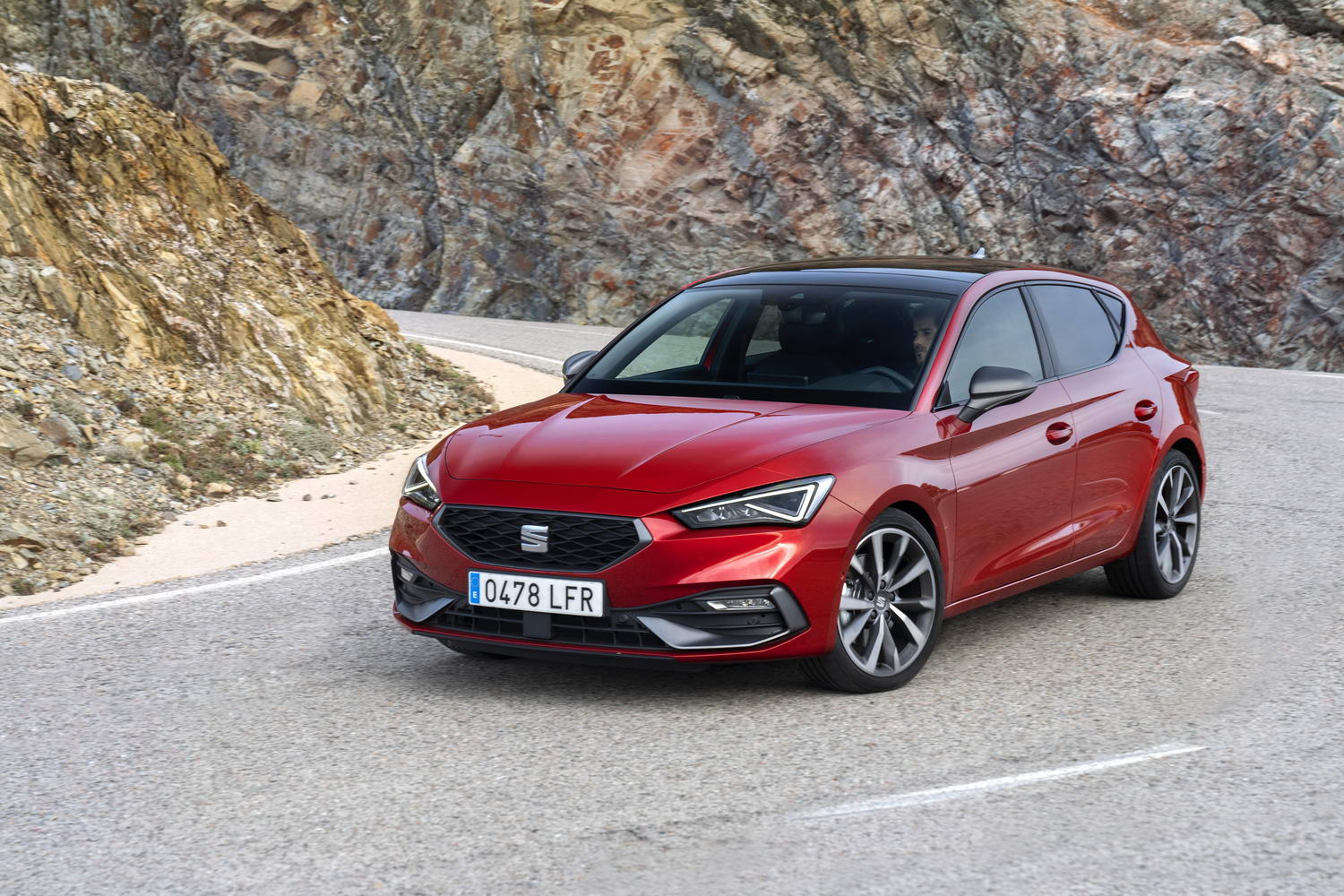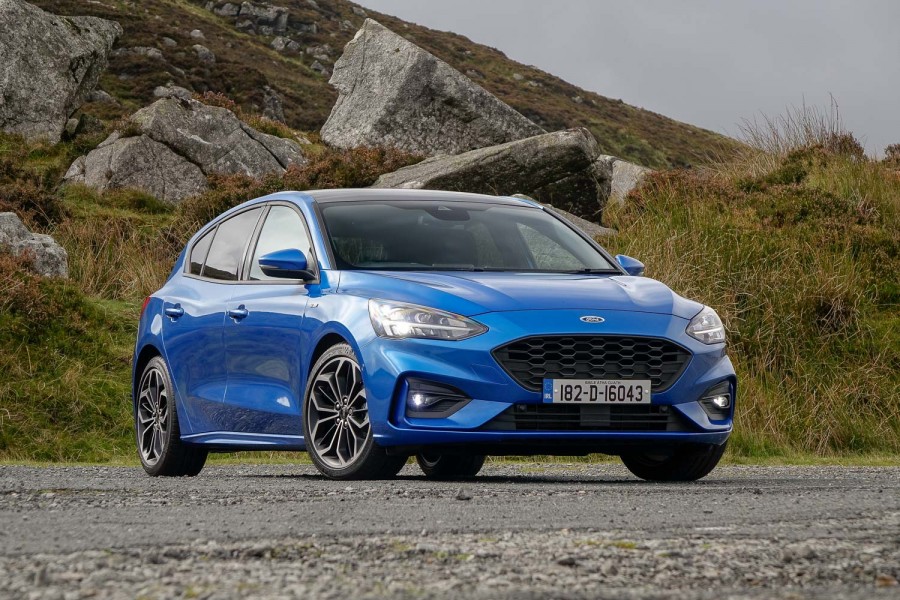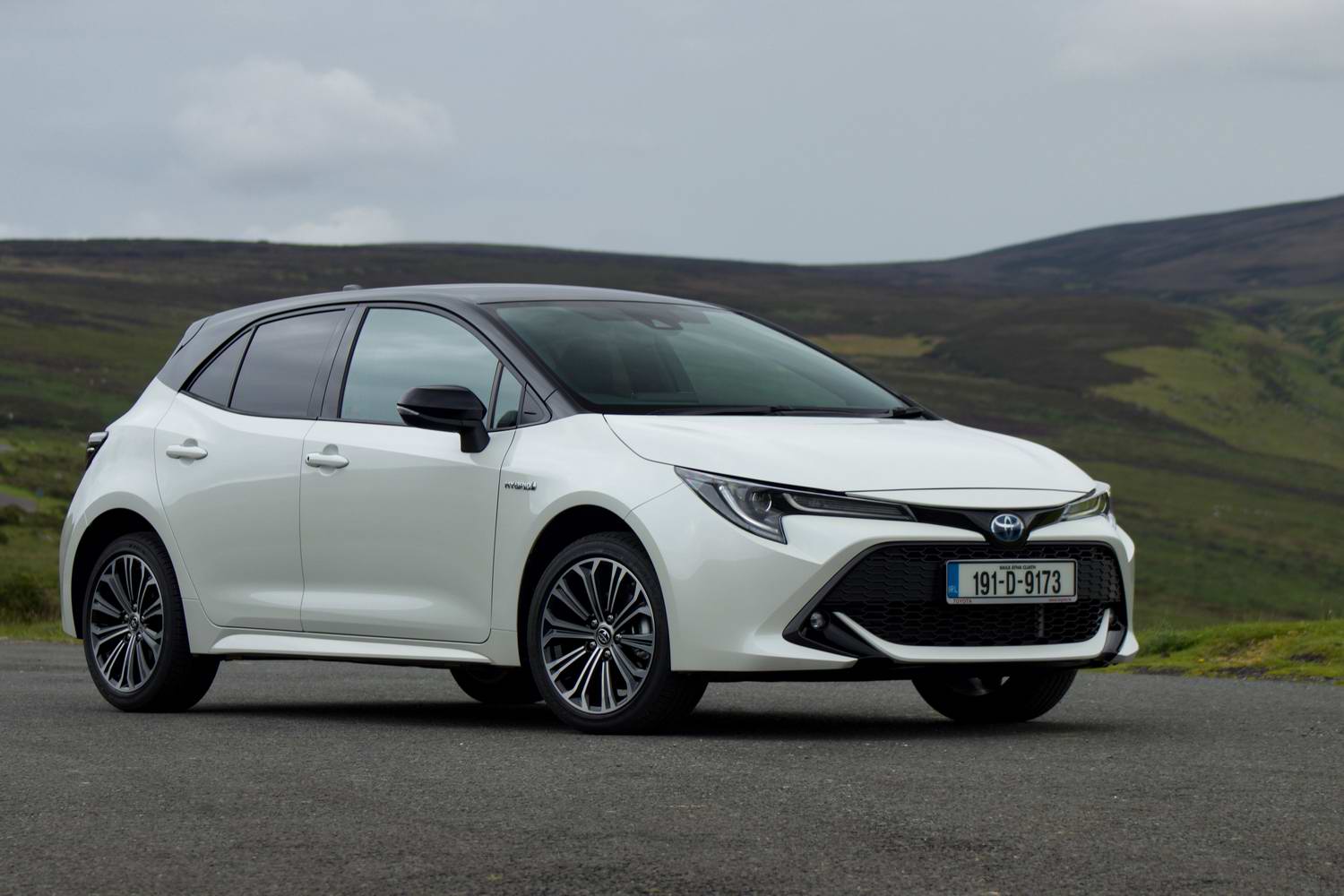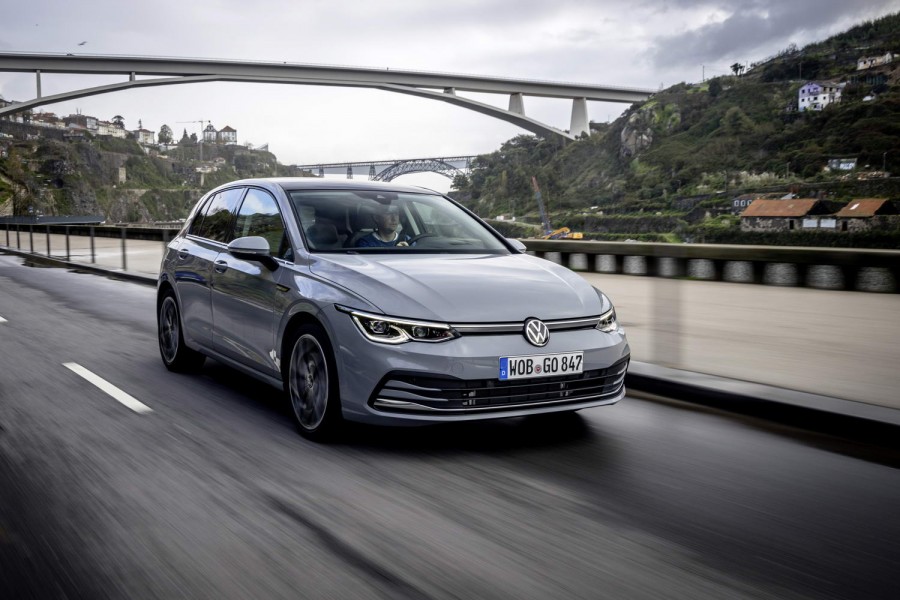SEAT sends a Spanish surface-to-surface missile straight at its overlords in Germany, in the shape of the brilliant new Leon Mk4. Seriously: why would you want a Volkswagen Golf Mk8, when this car is cheaper model-for-model, looks nicer on the outside, has a cabin every bit as swish as its Teutonic cousin's and can match the VW step-by-step for refinement? Beats us.
In the metal
Ever since the Mk3 arrived in time for the 2013 model year, the SEAT Leon has been more attractive on the outside than the Volkswagen Golf and this has not been reversed when we compare the new Leon 4 to the Golf 8. The latter is always hamstrung by the weight of its own history, the new version's latest bodywork having to pay homage to all that's gone before, while the Leon is a little more freeform and fun. We wouldn't say the Mk4 is perfect to behold, as we're actually of the opinion that the old Leon is a tidier piece of design, but those Tarraco-like LED daytime running lights and a bonnet that no longer shuts flush with the top of the radiator grille give it definable visual identity up front as an ultra-modern SEAT, while the full-width light strip on the back of the car is another of-the-moment flourish. In FR spec, with bigger alloys, sportier lower body addenda and satin-effect mirrors, it's pretty striking and clearly more appealing than the by-the-numbers Golf 8.
But then you move within, and where the old Mk3 Leon seemed to have to 'make do' with the switchgear and hardware from a late-2000s Golf Mk6, making it feel off the pace compared to the then-contemporary Golf Mk7, this time around the Leon has a cockpit every bit as advanced as the Golf's. Admittedly, just how advanced it is depends on the specification (see What You Get For your Money, below) but with its crisp digital instrument cluster, a gorgeous 10-inch touchscreen sitting centrally for the infotainment, the minimalistic climate control temperature bar-buttons underneath and the Audi-type light pad down to the side of the steering wheel, this feels like a thoroughly 2020 cabin in every regard. Not only that, but there's now some visual sculpting to the architecture of the dash that will draw the occupants' eye, as well as more light-and-shade trim finishing so that it doesn't, as it could on the old Leon, feel as if you're sitting inside a coal shed if you spec everything in black. Even the dash-top is made of soft-touch materials, the air vents are all angular and detailed, and the steering wheel is festooned with buttons, so this is a highly advanced and highly likeable interior. Not to mention spacious: rear-seat space is ample; the boot holds 380 litres with all seats in play. Four stars for the SEAT's exterior styling, then, yet unquestionably full marks for this glorious cabin.
Driving it
As with the Golf 8 and the new Skoda Octavia (also onto its fourth generation in 2020), the Leon uses tried-and-tested turbocharged engines. Here in Ireland, it's a 1.0-litre, three-cylinder or a 1.5-litre, four-cylinder TSI if you want petrol power, the former with 110hp and the latter churning out 150hp. Two identical outputs are also produced by a 2.0-litre TDI four-cylinder turbodiesel, the 110hp only hooked up to a six-speed manual, but the 150 TDI having the option of a seven-speed DSG automatic if you want it.
To have a DSG auto on the TSI Leons (which are otherwise six-speed manuals), you need one of the new mild-hybrid 'eTSI' versions. These generate no more power or torque than their non-'e' relations, but they do have lower fuel consumption and CO2 emissions. Finally, a plug-in hybrid variant of the Leon is on the way, using a 1.4-litre TSI petrol engine with electric augmentation for a 204hp peak output and suitably low consumption and CO2 figures.
Our test car, a 150hp FR hatchback, is about middle of the line-up for the Leon, but that's the only thing middling about the way this car drives. Seriously, we're struggling to find fault with it. OK, the turbocharged engine can feel a bit flat if you drop it below peak torque coming on stream at 1,500rpm, and while the chassis of the Leon FR is commendably sharp and talented, we wouldn't say it is truly invigorating or eye-opening. Stoke the engine up and the Leon hustles along nicely, displaying minimal understeer, keen turn-in and nicely weighted controls, but it's not as overtly sporty as its predecessors once were.
However, the pay-off for this is refinement like you wouldn't believe. Even as an FR on 18-inch wheels and fixed-rate suspension, the ride comfort never deteriorates below a level that is anything less than 'excellent'. The Leon soaks up poor road surfaces in a manner that would befit a car three times its price, while the general noise suppression (of wind buffeting around the glasshouse and tyre roar from the wheel arches) is magnificent. On a motorway, on a fast-moving open road or in town, the Leon is always graceful, always deeply impressive.
This character is abetted by another silky-smooth Volkswagen Group drivetrain, the four-cylinder engine staying hushed (maybe a bit too hushed; even at 6,000rpm and chasing the redline, the TSI is remarkably muted) and vibration-free throughout its operating range. It is teamed to a super-slick six-speed manual gearbox that engages gears almost as if there were no actual cogs, while the steering is light and fast-responding, lending yet more fluid feel to the way the Leon moves about. It's just a thoroughly easy-going car and one in which it is almost impossible to drive it in a rough or cack-handed fashion, which in turn only amplifies the sensation that you're sitting in the class-leader for in-car refinement. Gone are the days when Leon FR models used to be a touch unresolved on poorer asphalt; this Mk4 takes everything in its stride without so much as breaking sweat.
What you get for your money
It is true that, to have the Leon at its most dramatic with its fancy LED DRL signatures and its 'coast-to-coast' rear light strip and its digital instrument cluster and its ten-inch infotainment system, you need to be splashing out on at least an Xcellence Plus (from €29,310) model, rather than a base SE. But, even accounting for that, when a basic Golf 8 costs from €27,750, you can see why the SEAT represents such cracking value. Especially as even 'base' SE Leons get adaptive cruise control, LED headlights, Lane Assist, air conditioning, 16-inch alloys and an 8.25-inch touchscreen infotainment system that supports Apple CarPlay, Android Auto and MirrorLink. You only need to step up to Xcellence, which at €26,710 starts at less than the cheapest Golf, to gain the digital instrument cluster, as well as full-width rear lamps, wireless smartphone charging, 17-inch alloys, three-zone climate control and wraparound interior ambient lighting. In short, the Leon is wonderfully well-equipped from entry point to launch flagship.
Summary
The new SEAT Leon has stepped out of the shadow of its Volkswagen Golf counterpart. While the badge kudos of the 'G-word' might mean people after the greatest current mid-sized hatchback still default to a Volkswagen showroom, those who bother to consider the Leon will soon realise that they can have a car that is every bit as cultured, as comfortable and as classy as a Golf Mk8, only wrapped up in a smarter suit, better equipped for the cash and less money to buy in the first place. Not only has the Spanish hatchback bloodied the nose of its Golf relation, the new Leon has installed itself pretty much right at the top of the current C-segment marketplace. That's how fantastically good this car is.






























